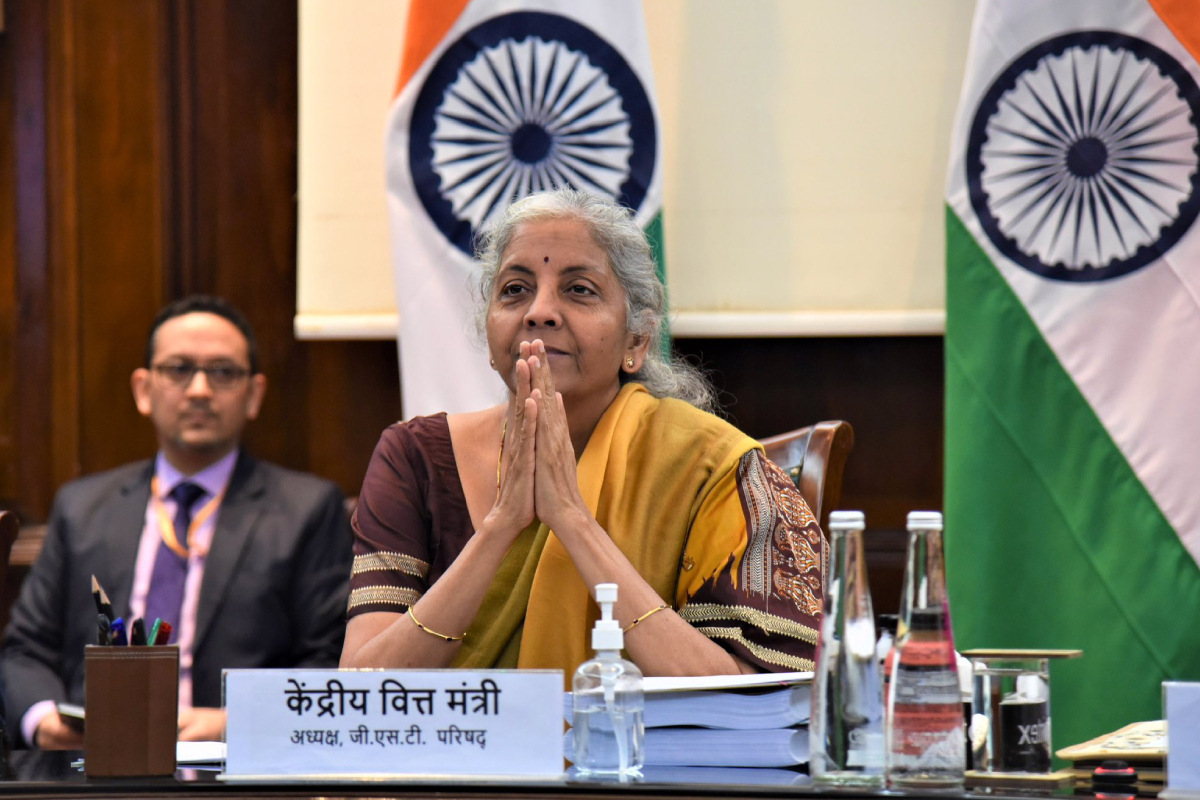Union Finance minister Nirmala Sitharaman chaired the 48th Goods and Services Tax (GST) Council meeting that was held in New Delhi on Saturday.
Among the key decisions, the GST Council recommended decriminalising certain offences, increasing the threshold of the amount of tax for prosecution, and reducing the amount of compounding in GST, among others.
At the conclusion of the meeting, Union minister Sitharaman said, “In the GST Council meeting, there has not been any tax increase on any item. Everything that has been done is to issue clarifications where the ambiguity of interpretations prevails.”
Meanwhile, revenue secretary Sanjay Malhotra said that the GST Council agrees to decriminalise certain offences; the threshold for launching a prosecution has been doubled to ₹2 crore.
“Among the major decisions made today by the GST Council was a ground-breaking recommendation to decriminalise three types of offences under GST law: obstructing or preventing officers from carrying out their duties, deliberate tampering with evidence, and failure to supply information,” Malhotra said.
“Moreover, the threshold limits of tax amounts for launching prosecution under any criminal offence defined under the GST laws have been raised from ₹1 crore to ₹2 crores for all offences, other than those involving fake invoices,” the revenue secretary said.
“In the same line, in order to reduce the workload of courts, the compounding amount under certain offences has been reduced from 50% to 200% of the amount, to 25% to 100% of the amount,” he added.
Malhotra said it will take some time to bring these changes into effect, as while the central government will include these decriminalisation changes in the Finance Bill for 2023–2024, states will have to also suitably amend their legislation to bring the changes into effect.
“While a group of ministers from the GST Council submitted their report on the tax regime for casinos, online games, and horse racing to the Finance Minister a couple of days ago, it was not circulated or included in the agenda as there was too little time for members to study its recommendations,” Malhotra said. This report will also likely be taken up at the next GST Council meeting.
The Revenue Secretary also said that the GST levied on husks of pulses will be reduced from 5 per cent to zero. The GST on ethyl alcohol, which is taxed at 5 per cent for blending into petrol for oil marketing companies, will be extended to refineries, which are now taxed at 18 per cent. “This will further reduce our dependence on imported crude and save precious foreign exchange,” the Revenue Secretary said.
To dispel confusion about the GST rate to be levied on fryums, the Council has decided to clarify that fryums manufactured using the process of extrusion are specifically covered by a GST rate of 18 per cent.
The Council also decided that the incentive paid to banks by the Central Government under the scheme for the promotion of RuPay Debit Cards and low-value BHIM-UPI transactions is in the nature of a subsidy and thus not taxable.
A proposed system to allow unregistered suppliers and composition taxpayers to supply goods intra-state through e-commerce operators, which got an in-principle nod from the Council in June, will now kick off on October 1, 2023.
On the pending overhaul of the GST rate structure and the rationalisation of inverted duty structures, Sitharaman indicated that the Group of Ministers of the GST Council, chaired by Karnataka Chief Minister Basavaraj Bommai, has yet to submit its report on rationalising the GST rate structure.
Meanwhile, Sitharaman said that about seven agenda items, including the GoM report on the setting up of GST Appellate Tribunals and the issue of taxation on tobacco and gutkha, could not be discussed due to a paucity of time. She hoped that these pending items would be taken up at the next GST Council meeting.










